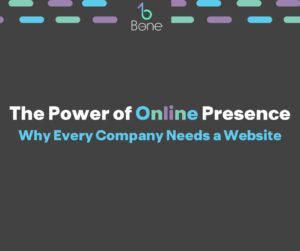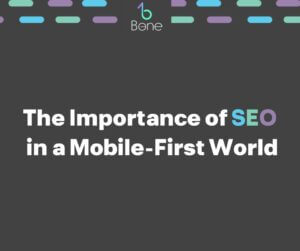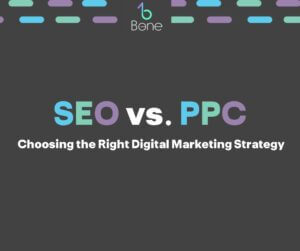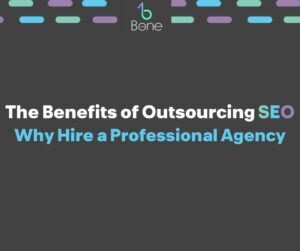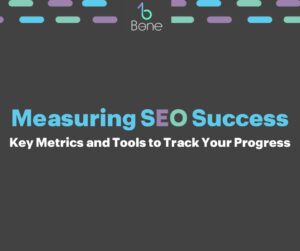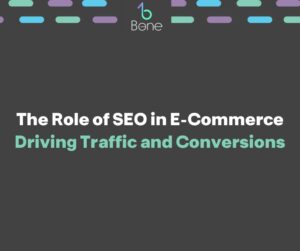In today’s digital age, having a strong online presence is crucial for the success of any company. A key component of this online presence is a well-designed and functional website. Whether a business is large or small, there are several compelling reasons why every company needs a website. Let’s explore some of the significant benefits:
- Accessibility and Availability: A website provides 24/7 accessibility to your company’s information, products, and services. Potential customers can visit your website at any time, from anywhere, allowing them to gather information and make purchases outside of regular business hours.
- Credibility and Trust: A professionally designed website helps establish credibility and build trust with potential customers. It serves as a digital storefront, showcasing your company’s values, expertise, and accomplishments. A well-designed website instills confidence in your brand and can differentiate you from competitors.
- Increased Reach and Visibility: With a website, your company can reach a global audience. It acts as a virtual billboard, promoting your products or services to a vast number of potential customers worldwide. It expands your market reach beyond the limitations of physical location, opening up new growth opportunities.
- Enhanced Customer Engagement: A website provides a platform for customers to engage with your company. Features such as contact forms, live chat, and customer support portals enable direct communication. You can gather valuable feedback, address inquiries promptly, and build stronger relationships with your customers.
- Marketing and Branding Opportunities: Your website serves as a central hub for your online marketing efforts. You can leverage various digital marketing techniques such as search engine optimization (SEO), content marketing, and social media integration to drive traffic and increase visibility. Additionally, you can align your website’s design and content with your brand identity, reinforcing brand recognition and consistency.
- Showcasing Products and Services: A website allows you to present your products and services in a visually appealing and organized manner. You can provide detailed descriptions, high-quality images, and even interactive features to engage visitors. This helps potential customers understand the value your company offers, leading to increased conversions and sales.
- Competitive Advantage: In today’s competitive business landscape, having a website is often expected. Without one, you risk falling behind your competitors who are leveraging the power of the internet to attract and retain customers. A well-designed website can give you a competitive edge by differentiating your company and establishing your presence in the online marketplace.
In conclusion, in an era where digital interactions dominate, having a website is essential for every company. It provides accessibility, credibility, and increased reach while enabling effective customer engagement and serving as a hub for marketing efforts. Investing in a well-designed website is a strategic decision that can help your company thrive in the digital age.
seo agency in egypt
In today’s digital age, having a website has become a crucial aspect of running a successful business. Let’s dive deeper into the reasons why having a website is essential and explore the specific benefits it offers, including reaching a wider audience, establishing credibility, and providing a platform for customer engagement.
- Reaching a Wider Audience: A website enables businesses to extend their reach beyond geographical boundaries. With an online presence, your business becomes accessible to a global audience, breaking free from the limitations of a physical location. This opens up new market opportunities and allows you to tap into a larger customer base.
- Establishing Credibility: In an era where consumers heavily rely on online research, having a website is vital for establishing credibility and trust. A well-designed and informative website showcases your professionalism, expertise, and the values of your business. It acts as a digital storefront, where potential customers can learn about your products, services, and brand story. A credible website helps to differentiate your business from competitors and builds confidence among your target audience.
- Providing a Platform for Customer Engagement: A website serves as a valuable platform for customer engagement and interaction. It enables two-way communication, allowing customers to easily get in touch with your business. Features such as contact forms, live chat, and customer support portals facilitate prompt responses to inquiries and support requests. By engaging with customers through your website, you can gather feedback, address concerns, and build strong relationships, leading to increased customer satisfaction and loyalty.
- Showcasing Products and Services: A website provides a centralized platform to showcase your products and services in a compelling and organized manner. You can include detailed descriptions, high-quality images, videos, and even interactive elements to engage visitors. This allows potential customers to understand the value your business offers and make informed purchasing decisions. Additionally, you can regularly update your website with new offerings, promotions, and testimonials to keep customers informed and interested.
- Boosting Online Marketing Efforts: A website acts as the cornerstone of your online marketing efforts. It provides a hub for various digital marketing strategies, such as search engine optimization (SEO), content marketing, and social media integration. By optimizing your website for search engines, you can improve your visibility in search results, driving organic traffic to your site. Content marketing through blog posts, articles, and downloadable resources establishes your business as a thought leader in your industry. Integration with social media platforms allows you to extend your reach and engage with customers on multiple channels.
- Facilitating E-commerce and Online Sales: For businesses offering products or services online, a website with e-commerce capabilities is essential. It provides a seamless platform for customers to browse, select, and purchase products or services. This convenience leads to increased sales and revenue. Even for businesses that primarily operate offline, a website can serve as a tool for lead generation, directing potential customers to physical stores or facilitating inquiries that can convert into sales.
In summary, having a website is crucial for businesses in today’s digital age. It enables reaching a wider audience, establishing credibility, and providing a platform for customer engagement. A website acts as a virtual storefront, empowering businesses to showcase their offerings, interact with customers, and enhance their online marketing efforts. By recognizing the importance of a website, businesses can leverage the digital landscape to thrive and succeed in their respective industries.
seo company in egypt
In today’s digital landscape, where mobile devices dominate the market and drive a significant portion of internet traffic, search engine optimization (SEO) has become increasingly important, particularly in a mobile-first world. With more and more people relying on their smartphones and tablets to access information, conduct searches, and make purchasing decisions, businesses need to prioritize mobile optimization and adapt their SEO strategies accordingly. This article discusses the importance of SEO in a mobile-first world and why it is crucial for businesses to optimize their online presence for mobile devices.
Mobile-First Indexing: In 2018, Google introduced mobile-first indexing, which means that the search engine primarily uses the mobile version of a website for indexing and ranking purposes. This shift was made because the majority of Google’s users now access the internet through mobile devices. If your website is not mobile-friendly or lacks optimization for mobile, it may experience lower search rankings, reduced visibility, and ultimately, decreased organic traffic.
User Experience (UX): Mobile optimization goes hand in hand with providing a positive user experience. Mobile users have specific needs and expectations, such as fast loading times, easy navigation, and responsive design. If your website fails to meet these criteria, visitors are more likely to leave quickly, leading to high bounce rates and a negative impact on your SEO. On the other hand, a well-optimized mobile site enhances user experience, encourages longer visit durations, and improves engagement metrics, signaling to search engines that your website is valuable and relevant.
Local Searches: Mobile devices play a crucial role in local searches. Many people use their smartphones to find nearby businesses, services, or products. In fact, a significant number of mobile searches have local intent, such as “restaurants near me” or “plumbers in [city].” Optimizing your website for local SEO and ensuring your business information is accurate and up-to-date can significantly boost your visibility in local search results, leading to increased foot traffic and conversions.
Voice Search: With the rise of virtual assistants and smart speakers, voice search has become increasingly prevalent. People are using voice commands to search for information, make inquiries, and interact with devices. Voice searches are typically longer and more conversational than typed queries, making long-tail keywords and natural language optimization critical for SEO success. Optimizing your content for voice search queries can help you capture more organic traffic and stay ahead of the competition.
Mobile-Friendly Content: In a mobile-first world, creating mobile-friendly content is paramount. This means designing content that is easy to read and digest on smaller screens, using shorter paragraphs, bullet points, and concise sentences. Mobile users tend to scan content rather than reading it thoroughly, so organizing information in a clear and structured manner is crucial. By optimizing your content for mobile consumption, you can improve engagement, reduce bounce rates, and increase the likelihood of social sharing, all of which positively impact your SEO.
Social Media and Mobile Integration: Social media platforms are predominantly accessed through mobile devices, and they play a significant role in driving traffic and engagement. Sharing mobile-optimized content on social media channels increases the chances of users consuming and sharing your content, thereby increasing its reach and potential to generate backlinks, social signals, and overall visibility.
In conclusion, in a mobile-first world, SEO is essential for businesses to thrive in the digital space. Mobile optimization not only improves search rankings and organic traffic but also enhances user experience, caters to local searches, taps into voice search trends, and leverages the power of social media. By prioritizing mobile optimization and keeping up with the ever-evolving mobile landscape, businesses can stay competitive and effectively reach their target audience.
Mobile optimization is crucial in SEO because of the growing dominance of mobile devices in online search and browsing. To ensure your website ranks well in search results and delivers an optimal user experience, consider the following tips for creating mobile-friendly websites, optimizing for voice search, improving site speed, and leveraging mobile-specific features:
- Responsive Web Design: Implement a responsive web design that automatically adjusts the layout and content of your website to fit different screen sizes and orientations. This ensures that your website looks and functions well on both desktop and mobile devices.
- Mobile-Friendly Navigation: Simplify your website’s navigation for mobile users by using clear and concise menus, collapsible sections, and easy-to-tap buttons. Avoid using large drop-down menus that may be difficult to navigate on smaller screens.
- Optimize Page Speed: Mobile users expect fast-loading websites. Optimize your website’s performance by compressing images, minifying CSS and JavaScript files, and leveraging browser caching. Consider using tools like Google PageSpeed Insights to identify areas for improvement.
- Voice Search Optimization: As voice search continues to rise in popularity, optimize your content for voice queries. Focus on long-tail keywords and conversational language. Answer commonly asked questions related to your industry or niche. Also, consider incorporating structured data markup to help search engines understand and present your content in voice search results.
- Mobile-Specific Keywords: Understand the differences in user intent between mobile and desktop searches. Mobile searches often have local intent or are related to immediate needs. Incorporate mobile-specific keywords that reflect these user behaviors. For example, include phrases like “near me,” “on the go,” or “open now.”
- Accelerated Mobile Pages (AMP): Consider implementing AMP, a technology that creates lightweight and fast-loading versions of your web pages specifically for mobile devices. AMP pages are prioritized by Google in mobile search results and can significantly improve your website’s performance.
- Mobile-Specific Features: Take advantage of mobile-specific features to enhance the user experience. For example, leverage touch-friendly gestures like swipe, pinch-to-zoom, or tap-to-call functionality for phone numbers. Implement mobile-friendly forms and ensure that contact forms or checkout processes are easy to complete on a mobile device.
- Local SEO: Optimize your website for local search by including your business address, phone number, and operating hours. Create a Google My Business profile and ensure your business information is accurate and consistent across online directories and local listings.
- User-Testing and Feedback: Regularly test your website on various mobile devices and gather feedback from users. Conduct usability tests to identify any issues or areas for improvement. Pay attention to factors such as readability, button sizes, and overall user experience.
- Mobile-Social Integration: Incorporate social sharing buttons and optimize your content for mobile-friendly sharing. Mobile users are more likely to engage with and share content on social media platforms, which can enhance your website’s visibility and organic reach.
By implementing these tips and continuously monitoring and adapting to changes in mobile user behavior, you can optimize your website for mobile devices, improve your search rankings, and provide a seamless user experience for mobile visitors.
seo companies in egypt
seo agency in egypt
marketing agency in cairo
seo-companies
When it comes to digital marketing, two of the most popular strategies are Search Engine Optimization (SEO) and Pay-Per-Click (PPC) advertising. Both approaches have their merits and can be effective in driving traffic and achieving marketing goals. Let’s explore the differences between SEO and PPC and how to choose the right strategy for your business.
Search Engine Optimization (SEO):
SEO involves optimizing your website and its content to rank higher in organic search engine results. Here are some key aspects of SEO:
a. Cost: SEO is typically considered a long-term investment and requires ongoing efforts. While the initial cost may be lower compared to PPC, it requires consistent optimization and content creation.
b. Traffic: SEO aims to increase organic search traffic to your website by targeting specific keywords and improving your site’s visibility. It can take time to see significant results, but once you achieve higher rankings, the traffic can be more consistent and sustainable.
c. Credibility: Organic search results are seen as more trustworthy by users compared to paid ads. Ranking well organically can enhance your brand’s credibility and authority.
d. Long-term benefits: With SEO, you’re working to improve your website’s overall visibility and user experience. As a result, you can enjoy long-term benefits even if you reduce your SEO efforts in the future.
seo company
Pay-Per-Click (PPC) Advertising:
PPC involves running paid ads on search engines or other platforms. Here are some key aspects of PPC:
a. Cost: PPC provides immediate visibility, but it can be more expensive compared to SEO since you pay for each click on your ads. The cost per click varies based on factors like competition and keyword relevance.
b. Traffic: PPC can generate immediate traffic to your website as soon as your ads are set up and approved. It’s a useful strategy for time-sensitive promotions or new product launches.
c. Control and targeting: PPC platforms offer precise targeting options, allowing you to reach specific demographics, locations, or interests. You have control over your ad copy, landing pages, and budget.
d. Testing and optimization: PPC campaigns provide data that can be analyzed and optimized for better performance. You can quickly adjust your strategies, test different ad variations and track conversions.
SEO Agency in Egypt
Choosing the Right Strategy:
To determine whether SEO or PPC is the right strategy for you, consider the following factors:
Budget: Assess your budget and evaluate the short-term vs. long-term impact. PPC can provide immediate results but can be costly in the long run. SEO requires ongoing efforts but can yield sustainable results.
Goals: Clarify your marketing goals. If you need quick traffic or want to promote a specific event, PPC might be a better fit. If you aim to build organic visibility and establish credibility, SEO is a good choice.
Competition: Evaluate the competitiveness of your industry and target keywords. If your niche has intense competition and high-cost keywords, it might be more cost-effective to start with SEO and complement it with targeted PPC campaigns.
Timeline: Consider your timeline for results. SEO is a long-term strategy that requires patience, while PPC can deliver immediate traffic. Align your strategy with your desired timeline and expectations.
In many cases, a combination of SEO and PPC can be an effective approach. SEO provides long-term benefits, while PPC offers immediate visibility. Regularly assessing your goals, budget, and competition will help you determine the right balance between the two strategies for your business.
SEO and PPC advertising are two distinct digital marketing strategies, each with its own benefits and considerations. By comparing and contrasting these approaches, businesses can make an informed decision based on their specific marketing goals and budget.
SEO Services in Egypt
-
Benefits of SEO:
- Cost-effectiveness: SEO can be more cost-effective in the long run as organic search rankings don’t require direct payments for clicks.
- Credibility and trust: Higher organic rankings can enhance a brand’s credibility and trustworthiness, as users perceive organic search results as more reliable.
- Sustainable traffic: Once a website achieves higher organic rankings, it can attract consistent and sustainable traffic without ongoing payments.
- Long-term results: SEO efforts focus on improving a website’s overall visibility and user experience, which can lead to long-term benefits even with reduced optimization efforts.
- Brand exposure: SEO helps increase brand visibility as websites ranking higher in organic search results tend to receive more exposure.
-
Considerations of SEO:
- Time-consuming: SEO is a long-term strategy that requires consistent efforts and time to see significant results. It involves tasks like keyword research, content optimization, link building, and technical improvements.
- Uncertainty: Search engine algorithms constantly evolve, and SEO rankings can fluctuate, requiring businesses to adapt their strategies and keep up with industry best practices.
- Competition: Depending on the industry and target keywords, competition for top organic rankings can be fierce, requiring more time and resources to outrank competitors.
- Limited control: While SEO provides overall website optimization, it doesn’t offer precise control over when and how your website appears in search results.
-
Benefits of PPC Advertising:
- Immediate visibility: PPC campaigns can generate immediate visibility and drive traffic to a website as soon as the ads are set up and approved.
- Targeted reach: PPC platforms offer precise targeting options, allowing businesses to reach specific demographics, locations, or interests.
- Control over budget and ad copy: With PPC, businesses have control over their ad copy, landing pages, and budget. They can set daily or monthly spending limits and adjust bids as needed.
- Data-driven optimization: PPC campaigns provide valuable data and insights, enabling businesses to analyze performance, test different ad variations, and optimize for better results.
- Flexibility: PPC allows businesses to launch time-sensitive promotions, target specific events, or adjust strategies quickly based on market trends or business needs.
-
Considerations of PPC Advertising:
- Cost: PPC can be more expensive compared to SEO since businesses pay for each click on their ads. The cost per click varies based on factors like competition, keyword relevance, and targeting options.
- Ongoing investment: To maintain visibility and traffic, businesses need to allocate a continuous budget for PPC campaigns. Once the budget is exhausted or campaigns are paused, the traffic stops.
- Ad fatigue: Over time, users may develop “ad blindness” and become less responsive to paid advertisements, leading to diminishing returns if the ad creative and targeting are not refreshed regularly.
- Learning curve: Managing PPC campaigns effectively requires knowledge of the platforms, keyword research, ad creation, bidding strategies, and ongoing optimization. It may take time to learn and master these skills.
services seo
Choosing the Right Approach: To determine which approach aligns better with marketing goals and budget, consider the following factors:
- Goals: Clarify the desired outcomes and timeframe for results. If immediate visibility, conversions, or time-sensitive promotions are crucial, PPC may be suitable. For long-term brand visibility, credibility, and sustainable traffic, SEO is a better fit.
- Budget: Assess the available budget and evaluate the short-term vs. long-term impact. SEO requires ongoing efforts but can provide cost-effective, sustainable results. PPC offers immediate visibility but requires continuous investment.
- Competition: Evaluate the competitiveness of the industry and target keywords. If the competition is intense or keywords are highly competitive and expensive, starting with SEO and complementing it with targeted PPC campaigns can be a cost-effective approach.
- Control and flexibility: Consider the level of control and flexibility required. PPC allows precise targeting and immediate adjustments, while SEO provides more overall website optimization and credibility-building.
- Data and analysis: Determine the importance of data-driven optimization. PPC campaigns provide more granular data, allowing for quick adjustments and testing. SEO requires monitoring key metrics over time and adapting strategies accordingly.
In many cases, combining SEO and PPC can be a powerful strategy. SEO provides long-term benefits, while PPC offers immediate visibility and targeted reach. Assessing goals, budgets, competition, control needs, and data analysis requirements will help determine the right balance between the two approaches for optimal results.
Digital Marketing SEO
Outsourcing search engine optimization (SEO) to a professional agency can provide numerous benefits for businesses. SEO is a complex and ever-evolving field that requires expertise and dedicated resources to achieve optimal results. Hiring a professional agency with specialized knowledge and experience in SEO can help businesses achieve their online marketing goals more effectively. Here are some key benefits of outsourcing SEO to a professional agency:
Expertise and Specialized Knowledge: SEO agencies have a team of professionals who specialize in various aspects of SEO, including keyword research, on-page optimization, link building, content creation, and technical SEO. They stay up-to-date with the latest industry trends, algorithm updates, and best practices, allowing them to implement effective strategies for improved search engine rankings.
SEO services in Egypt
Time and Resource Efficiency: SEO requires continuous effort and investment of time and resources. By outsourcing this task to a professional agency, businesses can free up their internal resources and focus on core competencies. The agency will take care of all the SEO activities, saving time and effort for the business while delivering better results.
SEO Agency in dubai
Scalability and Flexibility: A professional SEO agency can adapt to the changing needs and goals of a business. Whether the business wants to expand its online presence, target new markets, or launch a new product/service, the agency can tailor SEO strategies accordingly. They have the flexibility to scale up or down their efforts based on the business’s requirements.
seo services company in dubai
Access to Advanced Tools and Technologies: SEO agencies have access to a wide range of premium tools and technologies that aid in keyword research, competitor analysis, website auditing, performance tracking, and more. These tools can be expensive for businesses to acquire individually. By outsourcing SEO, businesses can leverage these tools without incurring additional costs.
Best SEO Agency In Egypt
Improved ROI: Professional SEO agencies are focused on delivering measurable results and improving the return on investment (ROI) for their clients. They employ data-driven strategies, track key performance indicators (KPIs), and provide regular reports and insights to demonstrate the effectiveness of their efforts. With their expertise, they can help businesses achieve higher organic search rankings, increased website traffic, and improved conversion rates.
SEO Companies Egypt
Continuous Monitoring and Optimization: SEO is an ongoing process that requires constant monitoring and optimization. A professional agency will regularly analyze data, monitor website performance, and make necessary adjustments to optimize SEO strategies. They can identify and rectify issues that may negatively impact search rankings and user experience, ensuring the website remains competitive and aligned with search engine algorithms.
seo company in egypt
In conclusion, outsourcing SEO to a professional agency offers businesses the advantage of specialized expertise, resource efficiency, scalability, access to advanced tools, improved ROI, and continuous monitoring and optimization. By entrusting their SEO efforts to experts, businesses can enhance their online visibility, drive targeted traffic, and ultimately achieve their digital marketing objectives.
digital marketing agency in egypt
Outsourcing SEO services to professional agencies can bring several advantages to businesses. Here are some key advantages worth considering:
Access to Specialized Expertise: SEO agencies have teams of professionals who specialize in various aspects of search engine optimization. These experts have in-depth knowledge and experience in areas such as keyword research, on-page optimization, link building, content creation, and technical SEO. By outsourcing SEO, businesses gain access to this specialized expertise, ensuring that their SEO strategies are executed effectively and efficiently.
Cost-effectiveness: Building an in-house SEO team can be costly. Hiring and training employees, purchasing necessary tools and software, and keeping up with industry updates and certifications can all add up. On the other hand, outsourcing SEO services to professional agencies allows businesses to access a full team of experts at a fraction of the cost. They can leverage the agency’s resources, tools, and experience without incurring the expenses associated with maintaining an internal team.
digital marketing agency in cairo
Time-saving Benefits: SEO requires continuous effort and dedication. It involves tasks such as keyword research, content optimization, link building, monitoring website performance, and analyzing data. These activities can be time-consuming, especially for businesses without dedicated SEO personnel. By outsourcing SEO, businesses can save valuable time and focus on their core competencies while leaving the SEO tasks to the agency. This allows for better time management and increased productivity.
Staying Updated with Industry Trends: SEO is a dynamic field that evolves rapidly. Search engine algorithms, ranking factors, and best practices change frequently. Professional SEO agencies stay updated with these changes and invest in ongoing training and education for their teams. By outsourcing SEO, businesses can benefit from the agency’s knowledge and ensure that their SEO strategies are aligned with the latest industry trends, ultimately leading to better search engine rankings and online visibility.
services seo
Access to Advanced Tools and Technologies: SEO agencies have access to a wide range of premium tools and technologies that aid in keyword research, competitor analysis, website auditing, and performance tracking. These tools can be expensive for businesses to acquire individually. By outsourcing SEO, businesses gain access to these advanced tools without having to invest in them directly. This access allows for more comprehensive analysis, data-driven decision-making, and improved SEO strategies.
Scalability and Flexibility: SEO needs may vary depending on the business’s goals, budget, and industry competition. By outsourcing SEO, businesses gain scalability and flexibility. Professional agencies can tailor their services based on the specific needs of the business, whether it’s expanding online presence, targeting new markets, or launching new products/services. They can adjust their strategies and allocate resources accordingly, providing businesses with a customized approach to SEO.
In summary, outsourcing SEO services to professional agencies offers businesses advantages such as specialized expertise, cost-effectiveness, time-saving benefits, and stay updated with industry trends. By leveraging the knowledge and resources of these agencies, businesses can optimize their SEO efforts and achieve better search engine rankings, increased organic traffic, and improved online visibility.
top marketing agencies in egypt
Measuring SEO success is crucial for evaluating the effectiveness of your search engine optimization efforts and determining whether you’re achieving your goals. By tracking key metrics and utilizing appropriate tools, you can gain insights into the performance of your SEO strategies and make informed decisions to improve your website’s visibility in search engine results. Here are some essential metrics and tools to help you track your progress:
Organic Traffic: Organic traffic refers to the number of visitors who reach your website through unpaid, organic search results. It is a fundamental metric for measuring SEO success. Tools like Google Analytics and Google Search Console can provide detailed insights into your organic traffic, including the number of visitors, their behavior on your site, and the keywords that led them to your pages.
Keyword Rankings: Monitoring your keyword rankings helps you understand how well your website is performing in search engine results pages (SERPs). Tools such as SEMrush, Moz, or Ahrefs allow you to track your keyword positions over time, identify fluctuations, and assess your progress in optimizing your website for specific search terms.
agencies in egypt
Backlinks: Backlinks are links from other websites pointing to your site, and they are crucial for SEO. Tools like Ahrefs, Moz, or Majestic provide backlink analysis, allowing you to track the number and quality of backlinks, identify new opportunities, and monitor your link-building efforts.
Click-Through Rate (CTR): CTR is the percentage of users who click on your website’s link in the search results after seeing it. Higher CTR indicates that your content is appealing and relevant to searchers. You can find CTR data in Google Search Console or through various SEO tools.
Conversion Rate: The conversion rate measures the percentage of visitors who complete a desired action on your website, such as making a purchase, filling out a form, or subscribing to a newsletter. Google Analytics and other analytics platforms enable you to track conversions and attribute them to specific traffic sources, including organic search.
top marketing agencies in egypt
Bounce Rate: The bounce rate indicates the percentage of visitors who leave your website without engaging further. A high bounce rate may indicate that visitors did not find what they were looking for or that your site’s user experience needs improvement. Google Analytics provides bounce rate data, and you can analyze it for organic traffic specifically.
seo company
Page Load Speed: Page load speed affects user experience and SEO rankings. Tools like Google PageSpeed Insights or GTmetrix help you measure your website’s speed, identify performance bottlenecks, and provide recommendations for improvement.
Mobile Optimization: With the increasing use of mobile devices, it’s crucial to track how well your website performs on mobile. Google’s Mobile-Friendly Test and tools like MobileMoxie or BrowserStack can help you assess your mobile optimization efforts and identify areas for improvement.
By regularly monitoring these key metrics and utilizing appropriate tools, you can track your SEO progress, identify areas that require attention, and make data-driven decisions to enhance your website’s visibility and organic search performance.
SEO Agency in Egypt
Certainly! Understanding and tracking essential SEO metrics is crucial for measuring the success of your search engine optimization efforts. Here are the key metrics you should focus on and some recommended tools to monitor and analyze them effectively:
Organic Traffic:
Organic traffic refers to the number of visitors who find your website through unpaid, organic search engine results. It indicates the visibility and reach of your website in search engines. The primary tool to monitor organic traffic is Google Analytics. It provides detailed insights into the number of visitors, their behavior on your site, the sources of traffic, and the keywords that drive organic visits. Other tools like Google Search Console and Bing Webmaster Tools can also provide valuable organic traffic data.
SEO Specialist
Keyword Rankings:
Keyword rankings show the positions of your website’s pages in search engine results for specific search terms. Monitoring keyword rankings helps you assess your visibility and track your progress in optimizing your site for targeted keywords. Tools like SEMrush, Moz, Ahrefs, and Serpstat offer comprehensive keyword ranking tracking. These tools allow you to monitor keyword positions over time, track fluctuations, compare your rankings with competitors, and identify opportunities for improvement.
Backlinks:
Backlinks are links from other websites that point to your site. They play a vital role in SEO, as search engines consider them as a vote of confidence and authority for your content. Monitoring your backlinks helps you evaluate your link-building efforts and identify opportunities for growth. Tools like Ahrefs, Moz, Majestic, and SEMrush offer comprehensive backlink analysis. They provide data on the number of backlinks, their quality, anchor text, and referring domains.
Conversion Rates:
Conversion rate measures the percentage of visitors who complete a desired action on your website, such as making a purchase, filling out a form, or subscribing to a newsletter. It indicates the effectiveness of your website in generating meaningful actions. Google Analytics is an excellent tool to track conversions. You can set up goals and track conversions attributed to organic traffic. It provides insights into the conversion rate, conversion funnel, and other valuable conversion metrics.
Bounce Rate:
Bounce rate refers to the percentage of visitors who leave your website without interacting with it further. A high bounce rate may indicate a poor user experience or irrelevant content. Google Analytics offers bounce rate data, allowing you to assess the engagement of organic traffic specifically. You can analyze bounce rates for individual pages, identify areas that need improvement, and optimize your content and user experience accordingly.
Recommended Tools for SEO Monitoring and Analysis:
Google Analytics: Provides in-depth insights into website traffic, user behavior, conversions, and more.
Google Search Console: Offers data on organic search performance, indexing, crawl errors, and keyword rankings.
SEMrush: Provides comprehensive keyword research, rank tracking, backlink analysis, and competitor insights.
Moz: Offers keyword research, rank tracking, site auditing, backlink analysis, and on-page optimization tools.
Ahrefs: Provides extensive backlink analysis, keyword research, rank tracking, and content auditing capabilities.
Serpstat: Offers keyword research, rank tracking, backlink analysis, and site auditing features.
Majestic: Focuses on backlink analysis, offering insights into link profiles, anchor text, and referring domains.
By monitoring and analyzing these essential SEO metrics with the help of appropriate tools, you can gain valuable insights into the performance of your website, identify areas for improvement, and make data-driven decisions to enhance your SEO strategies.
SEO Agencies Near Me
The role of Search Engine Optimization (SEO) in e-commerce is crucial for driving traffic and conversions. SEO involves various strategies and techniques aimed at improving a website’s visibility and ranking in search engine results pages (SERPs). By optimizing an e-commerce website for search engines, businesses can attract more organic traffic, increase their online visibility, and ultimately drive conversions. Here’s a closer look at the key aspects of SEO in e-commerce:
Enhanced Visibility: SEO helps e-commerce websites appear higher in search results when users search for relevant keywords or phrases. When a website ranks higher, it becomes more visible to potential customers, leading to increased organic traffic.
Targeted Traffic: Effective SEO strategies target specific keywords and phrases relevant to the products or services offered by an e-commerce business. By optimizing product pages, category pages, and other relevant content, businesses can attract targeted traffic that is more likely to convert into customers.
services seo
Keyword Research: SEO starts with thorough keyword research to identify the terms and phrases potential customers use when searching for products or services. By understanding these keywords, e-commerce businesses can optimize their website content to align with users’ search intent.
On-Page Optimization: On-page SEO involves optimizing various elements on a website to improve its search engine visibility. This includes optimizing meta tags, headings, URL structures, and incorporating relevant keywords naturally throughout the content. Proper on-page optimization helps search engines understand the website’s content and relevance to specific search queries.
Technical SEO: Technical SEO focuses on optimizing the technical aspects of a website to improve its search engine crawlability and indexability. This includes optimizing website speed, mobile-friendliness, site architecture, XML sitemaps, and ensuring proper implementation of structured data markup. Technical SEO ensures that search engines can access and understand the website’s content effectively.
Professional SEO Consultant
High-Quality Content: Content plays a vital role in SEO for e-commerce. Creating high-quality and engaging content helps attract and retain visitors, encourages them to explore the website further, and increases the likelihood of conversions. Content optimization involves creating unique product descriptions, informative blog posts, customer reviews, and other relevant content that adds value to the user experience.
Link Building: Building high-quality inbound links to an e-commerce website is an essential aspect of SEO. Search engines consider backlinks as a vote of confidence and use them to determine a website’s authority and relevance. Strategic link building through content marketing, influencer partnerships, and outreach campaigns can improve the website’s search engine rankings and increase organic traffic.
User Experience: SEO and user experience (UX) go hand in hand. Search engines value websites that offer a positive user experience, including easy navigation, fast load times, mobile responsiveness, and intuitive design. Optimizing UX factors can improve search rankings and encourage visitors to spend more time on the site, browse through products, and make purchases.
Local SEO: For e-commerce businesses with physical store locations, local SEO is crucial. Optimizing the website for local search queries, setting up and managing Google My Business profiles, and acquiring positive reviews can help attract local customers searching for products or services within their vicinity.
Ongoing Monitoring and Optimization: SEO is an ongoing process that requires continuous monitoring, analysis, and optimization. By tracking website performance, analyzing user behavior, and making data-driven improvements, e-commerce businesses can stay ahead of their competition and adapt to changing search engine algorithms.
SEO services in Egypt
In summary, SEO plays a vital role in e-commerce by driving targeted traffic, enhancing visibility, and increasing conversions. By implementing effective SEO strategies, businesses can improve their website’s search engine rankings, attract relevant organic traffic, and ultimately drive more sales and revenue.
SEO plays a significant role in e-commerce by helping businesses drive traffic and boost conversions. Let’s take a closer look at specific SEO strategies that are particularly effective in achieving these goals:
small business SEO packages
Optimizing Product Descriptions: Product descriptions are crucial for e-commerce websites as they provide valuable information to potential customers and search engines. By optimizing product descriptions with relevant keywords, businesses can improve their visibility in search results. It’s important to create unique, compelling, and informative descriptions that highlight the features, benefits, and unique selling points of each product. Well-optimized product descriptions can attract organic traffic from users actively searching for specific products, increasing the chances of conversion.
digital marketing agency egypt
Implementing Structured Data Markup: Structured data markup, such as Schema.org markup, helps search engines understand the content and context of a web page better. By adding structured data to product pages, businesses can provide search engines with additional information about the products, including price, availability, reviews, and ratings. This can lead to rich snippets appearing in search results, making the listings more visually appealing and informative. Rich snippets not only increase click-through rates but also enhance the credibility and trustworthiness of the website, ultimately driving more traffic and conversions.
seo company
Leveraging User-Generated Content (UGC): User-generated content, such as customer reviews, ratings, and testimonials, can significantly impact e-commerce SEO. Positive reviews not only build trust among potential customers but also contribute to the visibility and rankings of the product pages in search results. Encouraging customers to leave reviews and ratings, and displaying them prominently on product pages, can enhance the website’s credibility and persuade other users to make a purchase. Additionally, search engines often prioritize websites that have fresh, user-generated content, as it indicates an active and engaged user community.
SEO Egypt Services
Keyword Research and Optimization: Keyword research is a fundamental aspect of SEO in e-commerce. By identifying and targeting relevant keywords that have a high search volume and purchase intent, businesses can optimize their website content and product pages accordingly. Keyword optimization involves incorporating keywords naturally into product titles, descriptions, headings, and meta tags. By aligning the website’s content with users’ search intent, businesses can attract targeted traffic and improve the likelihood of conversions.
seo services company in dubai
Mobile Optimization: With the increasing use of mobile devices for online shopping, mobile optimization is crucial for e-commerce SEO. Google and other search engines prioritize mobile-friendly websites in their rankings. Optimizing e-commerce websites for mobile devices includes ensuring responsive design, fast load times, easy navigation, and intuitive user interfaces. Mobile optimization not only improves search engine rankings but also provides a seamless user experience, leading to higher engagement, longer session durations, and increased conversions.
SEO Agency in dubai
Content Marketing and Link Building: Content marketing is an effective strategy for driving traffic and improving SEO in e-commerce. Creating valuable and engaging content, such as blog posts, buying guides, and tutorials, can attract organic traffic and establish the website as a reliable source of information. Additionally, content marketing can facilitate link building, as high-quality content is more likely to attract inbound links from other websites. Building a diverse and authoritative backlink profile helps improve search engine rankings and drive referral traffic to the e-commerce site, ultimately boosting conversions.
Overall, optimizing product descriptions, implementing structured data markup, leveraging user-generated content, and employing other effective SEO strategies can significantly contribute to driving traffic and boosting conversions in e-commerce. By aligning the website with search engine guidelines and user expectations, businesses can improve their visibility, attract targeted traffic, and provide a seamless user experience, ultimately leading to increased sales and revenue.
SEO Experts in Egypt
